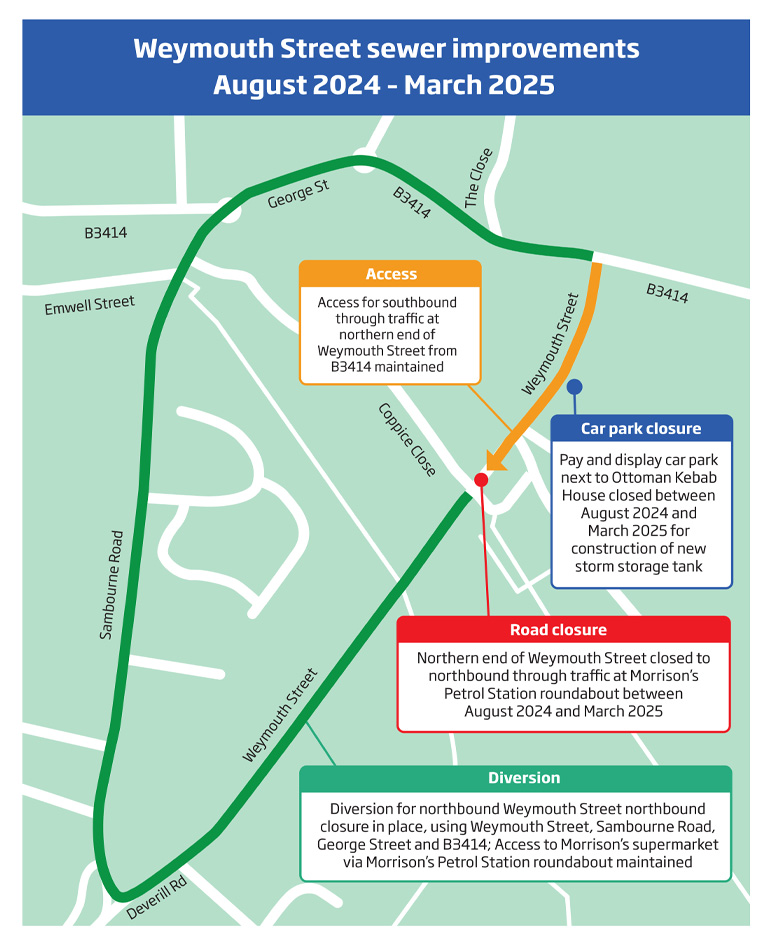Protecting The Weare in Warminster
We’re investing nearly £2 million to help safeguard the river in the centre of the Wiltshire town by reducing its exposure to untreated sewer water.
What’s the problem?
When it rains heavily, Warminster’s sewers can be overwhelmed by the sheer volume of water travelling through the network.
Because much of the country’s sewer system carries both foul water from homes and businesses and rainwater runoff from buildings and surfaces, if there is too much water in the network, storm overflows can operate automatically to release water that hasn’t yet gone through the treatment process back into our rivers.
Storm overflows protect properties from flooding and have always been a part of our sewer network - but we’re committed to progressively eliminating the discharge of diluted untreated water.
What are we doing and how will it help?
Construction teams will move on to land next to Weymouth Street in the centre of the town in August to start a seven-month project to sink a storage tank capable of holding more than 400,000 litres of excess water from sewers during heavy storms underground.
The tank will retain increased water volume from the combined sewer system until the storm subsides before returning it to the system and onwards to a nearby water recycling centre for treatment.
The scheme will enhance the protection of the nearby Weare (Swan River) – a tributary of the 28-mile River Wylye that runs through Wiltshire.
The tank will be sunk below ground in a small car park, next to the Ottoman Kebab House, towards the north end of Weymouth Street during the project, which is scheduled to be completed by March 2025

How else are we tackling storm overflows?
The Warminster project follows the completion of a similar scheme in Bradford on Avon which was completed last month and saw a further 160,000 litres of storage space being created within Victory Field, in Bradford on Avon as part of a near-£2 million investment.
Completed and ongoing projects in Bath and Bristol are also helping to protect the River Avon, part of a programme of nearly 100 projects within our £3 million a month programme being completed before the end of next year to reduce the overall operation of overflows by a quarter.
As well as storage solutions, we are tackling storm overflows before 2025 by increasing capacity to treat sewage at 42 of our water recycling centres, including introducing more nature-based and low-carbon treatment methods such as reedbeds and wetlands also being delivered.
The investigation and monitoring of overflows have also been enhanced, along with increased sewer relining to help keep wastewater within the system and prevent the infiltration of groundwater that can lead to flooding.
We have also unveiled proposals to invest a record £400 million towards the goal of reducing overflow operations in its next five-year investment period between 2025 and 2030, subject to approval by industry regulators.
